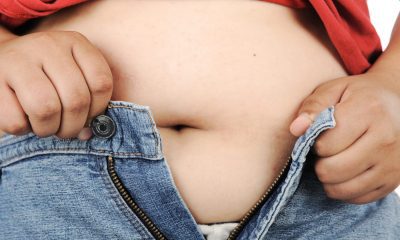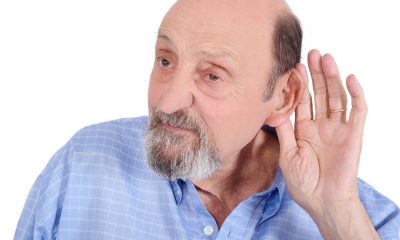By Joe Morgan via SWNS
Being socially isolated makes your teeth fall out, according to a new study.
Having fewer friends, colleagues or less interactions with others is directly linked to having fewer teeth at an older age.
Researchers found that socially isolated adults are more likely to lose their teeth at a faster rate.
In many countries up to one in three older adults are lonely, according to the World Health Organisation, and the Covid-19 pandemic has made these issue worse.
New research discovered social isolation, which is measured by a lack of how many relationships or interactions a person has, instead of feelings of loneliness, was linked with teeth loss.
Feeling lonely had no link to accelerated tooth loss, the study found.
In the study based in China, older adults aged 65 to 74 have fewer than 23 teeth on average and 4.5% of this age group has lost all of their teeth.
Gum disease, smoking, lack of access to dental care, and chronic illnesses like diabetes and heart disease increase the risks of tooth loss.
Researchers analysed health data from over 4,200 adults aged 65 and up and compared surveys at different timepoints which captured measures of social isolation and loneliness.
More than a quarter (27.5%) of the study participants were socially isolated, and 26.5% reported feeling lonely.
The researchers found higher levels of social isolation were associated with having fewer teeth and losing teeth more quickly over time, even when controlling for other factors such as oral hygiene, health status, smoking and drinking, and loneliness.
via GIPHY
Older adults who were socially isolated had, on average, 2.1 fewer natural teeth and 1.4 times the rate of losing their teeth than those with stronger social ties.
Xiang Qi, PhD student at New York University, said: "Our study suggests that maintaining and improving social connections may benefit the oral health of older adults.
“The findings align with previous studies demonstrating that structural indicators of social disconnection can have powerful effects on indicators of health and well-being.
“While social isolation can result in a lack of support that can affect health behaviours, for older adults who feel lonely, it’s possible that their social networks are still in place and can help them to keep up healthy behaviours."
Professor in Global Health, Dr Bei Wu, said: “While social isolation and loneliness often go hand in hand, it’s possible to live alone and be socially isolated but to not feel lonely, or to be surrounded by people but still feel lonely.
“Socially isolated older adults tend to be less engaged in social and health-promoting behaviours like physical activity, which could have a negative impact on their overall functioning and oral hygiene, as well as increase their risk for systemic inflammation.
“This functional impairment seems to be a major pathway linking social isolation to tooth loss.”
The findings are published in Community Dentistry and Oral Epidemiology.

 Parenting7 days ago
Parenting7 days ago
 Lifestyle6 days ago
Lifestyle6 days ago
 Good News3 days ago
Good News3 days ago
 Broadcast1 week ago
Broadcast1 week ago
 Health3 days ago
Health3 days ago
 Broadcast1 week ago
Broadcast1 week ago
 Wildlife2 days ago
Wildlife2 days ago
 Money1 week ago
Money1 week ago






















